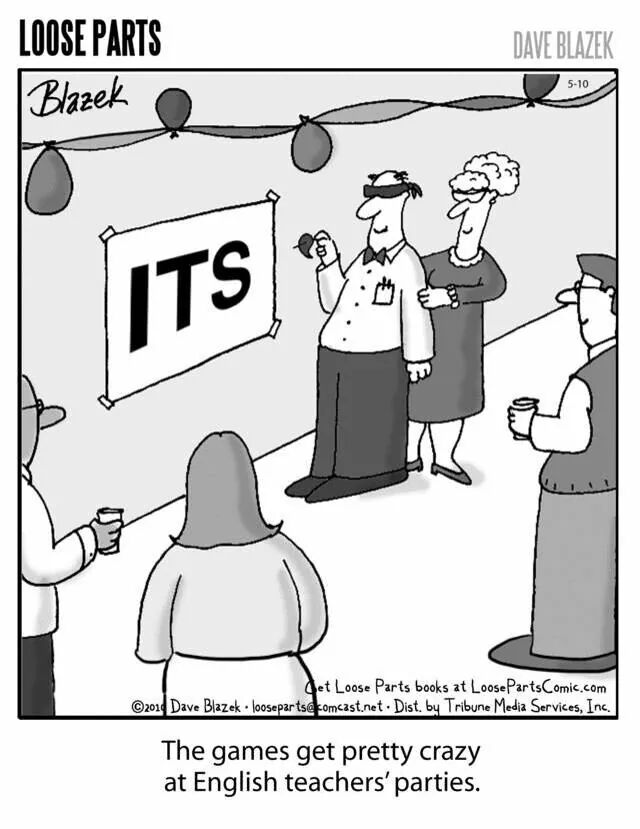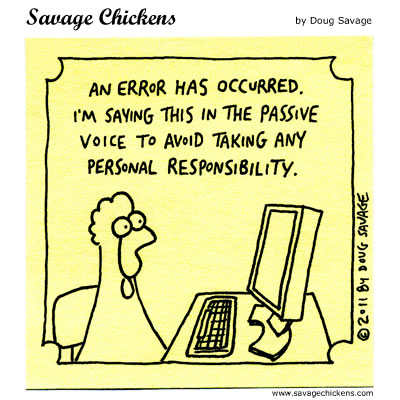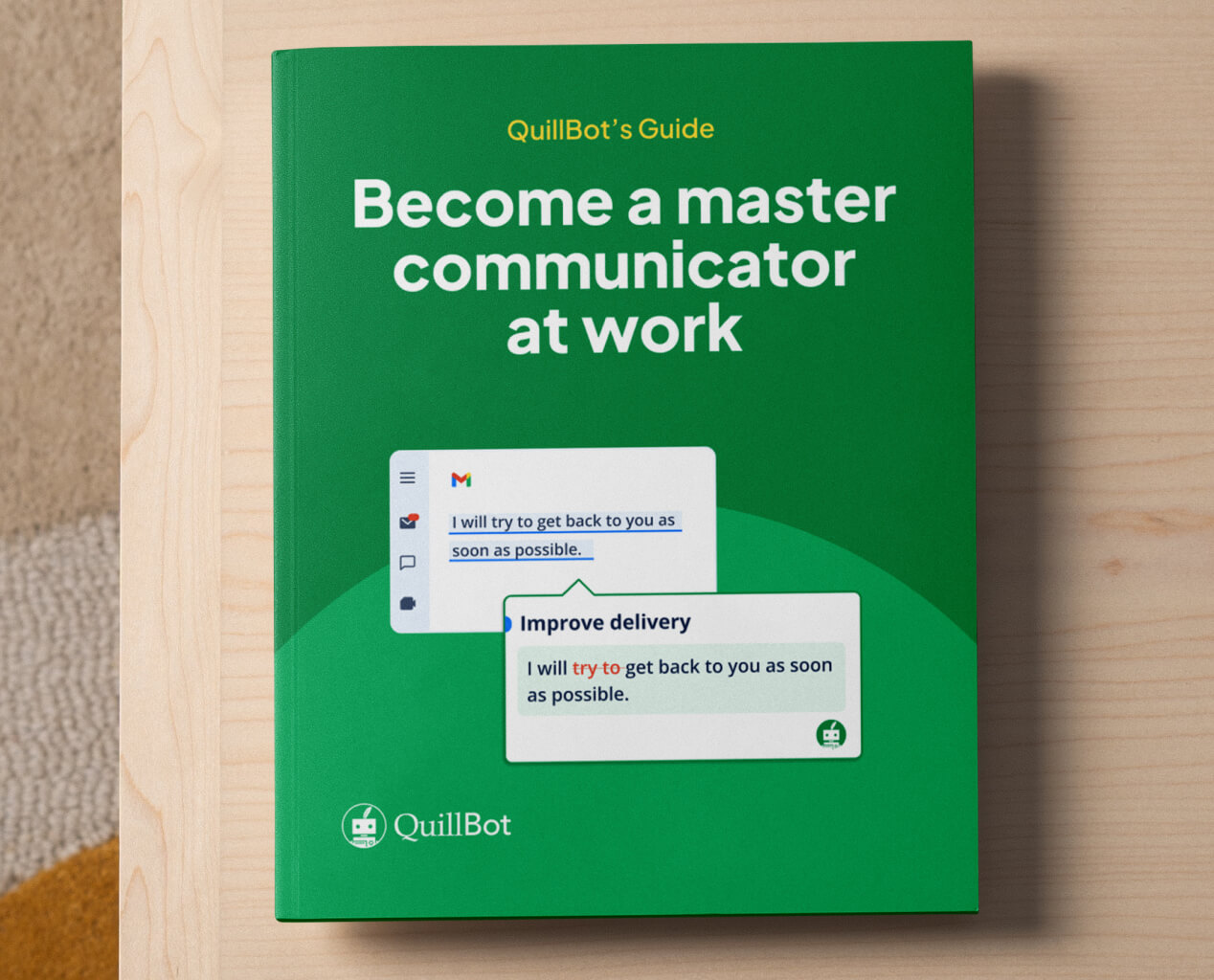10 Common Grammar Mistakes & How to Avoid Them
Learning about the most common grammar mistakes is one of the best ways to avoid errors. The 10 most common grammar mistakes include soundalike errors with words like “its” and “it’s,” unnecessary commas, subject-verb agreement errors, and comma splices.
The tips and examples below will help you spot common grammar mistakes in your writing or avoid them altogether. QuillBot’s Grammar Checker is also an invaluable resource for avoiding errors, and it’s completely free to use.
Its vs it’s
Its and it’s sound exactly the same, but they have two different meanings.
- Its (with no apostrophe) is a possessive adjective that modifies a noun (the person, place, or thing that belongs to “it”).
- It’s (with an apostrophe) is a contraction for “it” and “is.” The apostrophe represents the letter “i” in “is.”
When you’re unsure about when to use an apostrophe, read the sentence with “it is.” If “it is” makes sense, you can also write “it’s.” If not, you need “its” with no apostrophe.
- The jeep had mud all over it’s windshield.
- The jeep had mud all over its windshield.
- The game is cancelled because its raining.
- The game is cancelled because it’s raining.

They’re, their and there
They’re, their, and there sound alike, so they are easy to mix up, but they have different spellings and meanings.
- They’re is a contraction for “they are” (e.g., “The kids are excited because they’re starting school tomorrow”).
- Their is used when a group of people possess or have control of something (e.g., “their car,” which is similar to “his car” or “your car”).
- There refers to a location (e.g., “over there”), just like the word “here.”
Then vs than
Then and than are pronounced slightly differently, but they’re commonly confused because they sound similar.
Use “then” when you’re writing about a timeframe or a consequence (e.g., “Bring the water to a boil, and then add the rice”). “Then” rhymes with “when,” which is another time-related word.
Use “than” when you’re comparing two or more things (e.g., “Many people enjoy sitcoms more than movies”).
Unnecessary comma before because
You don’t need a comma before “because” or other subordinating conjunctions, such as “when” or “if.” Subordinating conjunctions begin dependent clauses in complex sentences. The only time you need a comma before a conjunction is when you’re using a coordinating conjunction (“for,” “and,” “nor,” “but,” “or,” “yet,” or “so”) in a compound sentence.
- The cat slept all day, because she stayed out all night.
- The cat slept all day because she stayed out all night.
- Cats have excellent night vision, but they can’t see in complete darkness.
Subject-verb agreement errors
Subject-verb agreement errors can affect even the most experienced writers. The subject-verb agreement rules are as follows:
- Third-person singular subjects take verbs that end in “-s” in the present tense.
- Third-person plural subjects take verbs that don’t end in “-s.”
Subject-verb agreement can be tricky when the sentence has a phrase or clause between the subject and the verb. For example, if you have a prepositional phrase after the subject, you might be tempted to match the verb with the object of the preposition.
- The box of old books have been sitting in the attic for years.
- The box of old books has been sitting in the attic for years.
- The group of friends get coffee together every Wednesday.
- The group of friends gets coffee together every Wednesday.
Overusing passive voice
Sentences in English can have active voice or passive voice. Active voice is preferable because it’s more concise. Here’s how active voice and passive voice differ.
- Active voice sentences have a subject that acts upon an object. They are organized as Subject + Verb + Object (e.g., “Van Gogh painted Starry Night“).
- In passive voice sentences, the object is acted upon by the subject. They’re structured as Object + Verb + Preposition (the word “by”) + Subject (e.g., Starry Night was painted by Van Gogh).
Passive voice isn’t incorrect, but overusing it can lead to wordiness. Save passive voice for when you want to emphasize the object of the verb (e.g., “My neighbor was stung by a bee”).
If passive voice is an ongoing challenge in your writing, try QuillBot’s free Paraphraser. It can instantly reword passages of your writing into active voice.

Fragments
Fragments occur when a sentence is missing a subject or a verb or when a writer confuses a phrase or dependent clause for a complete sentence. In other words, they don’t make complete sense because they’re missing important information.
- A collection of rare manuscripts from the 18th century.
- The museum exhibit featured a collection of rare manuscripts from the 18th century.
- Because the speaker was so inspiring.
- Because the speaker was so inspiring, the audience gave him a standing ovation.
- Discovered a breakthrough in renewable energy.
- The research team discovered a breakthrough in renewable energy.
One of the most effective ways to spot fragments is with backwards proofreading. Start by reading the last sentence in the draft. Then, work backward through the draft until you reach the beginning.
Comma Splices
A comma splice occurs when you use a comma to join or separate two independent clauses. The examples below illustrate the three main solutions.
Replace the comma with a period: She studied postcolonial literature extensively. Her dissertation focused on the works of Chinua Achebe.
Replace the comma with a semicolon: She studied postcolonial literature extensively; her dissertation focused on the works of Chinua Achebe.
Add a coordinating conjunction (“for,” “and,” “nor,” “but,” “or,” “yet,” “so”) after the comma: She studied postcolonial literature extensively, and her dissertation focused on the works of Chinua Achebe.
Run-on Sentences
Run-on sentences happen when at least two complete sentences are combined without the proper punctuation to join or separate them. The solutions for run-ons are similar to the three main fixes for comma splices, as illustrated below.
Add a period: Erikson’s theory about stages of development was groundbreaking. It changed the direction of child psychology.
Add a semicolon: Erikson’s theory about stages of development was groundbreaking; it changed the direction of child psychology.
Add a coordinating conjunction (“for,” “and,” “nor,” “but,” “or,” “yet,” “so”) after the comma: Erikson’s theory about stages of development was groundbreaking, and it changed the direction of child psychology.
Unnecessary apostrophes
Apostrophes are appropriate in contractions (e.g., “the computer’s brand new” for “the computer is brand new”) and possessive nouns (e.g., “my best friend’s wedding”), but you don’t need them in nouns that are just plural. Do use an apostrophe at the end of a plural noun that’s also possessive (e.g., “both of my sisters’ favorite game”).
The following examples show how to spot plural nouns that don’t need apostrophes.
- All of the student’s turned in their essays.
- All of the students turned in their essays.
- The airport’s are always crowded during the holidays.
- The airports are always crowded during the holidays.
Cite this QuillBot article
We encourage the use of reliable sources in all types of writing. You can copy and paste the citation or click the "Cite this article" button to automatically add it to our free Citation Generator.
Routh, N. (2025, November 03). 10 Common Grammar Mistakes & How to Avoid Them. Quillbot. Retrieved March 4, 2026, from https://quillbot.com/blog/common-mistakes/common-grammar-mistakes/

